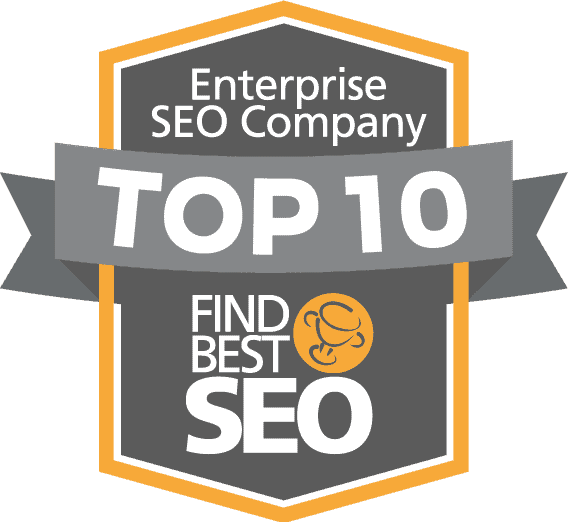Dominate The SERPs With A Results-Driven SEO Strategy Service
A vision without a strategy is an illusion.
You want the benefits of a high-ranking site. More Traffic. More Sales. You need a solid plan of action.Our SEO strategy consultants will devise an SEO plan to boost your visibility in search engines.
Claim Your FREE SEO Audit, No Strings Attached

Our SEO Strategy Services
The exact services our SEO agency offer will depend on the needs of your business; however, you can expect our team to use your SEO audit and business goals to formulate the basis of your search engine optimisation strategy. From there, we will perform keyword research, conduct competitor SEO benchmarking, analyse your link building performance, identify content gaps and more.

Tailoring Our SEO Strategies To Your Business
We are a full-service SEO agency, and our SEO strategies reflect this. Whether your business needs to be seen by a local audience or establish an international presence on search engines, we will adapt your SEO strategy accordingly to draw upon our Local SEO and/or International SEO expertise.
We’ll also integrate our mobile SEO, e-commerce SEO, WordPress SEO, and other specialist services into our bespoke SEO strategies like boilerplate to ensure that we fully take care of your company’s SEO needs.
Adaptable SEO Strategies
Our strategies aren’t set in stone. This is because the world of SEO is fast-paced and dynamic. Algorithms change frequently, and your business and/or competitor’s activity could change during your time with us.
Therefore, we continually adapt our client’s SEO strategies according to any changes and based on the results they are receiving. Doing so keeps our strategies effective and beneficial for the long-term.

You Can trust Pearl Lemon To Get Your SEO Strategy Right
We are a multi-award-winning, full-service SEO agency with 80+ 5-star reviews from our delighted clients. Regardless of what CMS you use or what industry you’re in, our experienced team has seen it all, and have a proven record of developing tailored SEO strategies to suit your needs.
If you’re still not convinced, check out our video case studies and client testimonials and feel free to book a call with our Founder and CEO Deepak Shukla.
SEO Strategy FAQs
Search engine optimizers (SEOs) are people who optimize websites to help them show up higher on search engines and gain more “organic traffic.” In essence, an SEO is a highly specialized content strategist and helps a business discover opportunities to answer questions people have about the industry via search engines.
There are three types of SEO that an SEO strategist can focus on:
- On-page SEO: This SEO focuses on the content that’s “on the page,” and how to optimize that content to help boost the website’s ranking for specific keywords.
- Off-page SEO: This SEO focuses on the links that are directing to the website from elsewhere on the internet. The number of “backlinks,” and the publishers carrying those links, that link to your website help you build trust in the eyes of a search engine. This causes your website to rank higher as a result.
- Technical SEO: This SEO focuses on a web site’s architecture, examining the backend of that website to see how each webpage is “technically” set up. Google cares as much about the code of a website as it does its content, making this speciality quite important to a website’s search engine ranking.
- White Hat
- Black Hat
- Grey Hat
- Negative SEO
- Create page titles. Keyword-based titles help establish page theme and direction for your keywords.
- Create meta tags.
- Place strategic search phrases on pages.
- Develop new sitemaps for Google and Bing.
- Submit a website to directories (limited use).
Listen, it won’t be easy!
- Try Using geographic keywords in page titles, links, and your content strategy.
- Claim your Google Places page. This will put your listing first whenever someone actually searches for your business name or your business type in your local area.
- Get listed in local search directories.
- Approach keywords strategically. Without proper keyword research, any SEO campaign is doomed to failure.
- Strictly adhere to an originality rule.
- Strategically adjust your site’s navigation and internal links.
- Optimize on-site elements across your site.
- Optimize your site’s load speed.
- Don’t buy links!
- Be natural.
Bounce rate is the percentage of single-engagement visits to your site.
That means, what Google Analytics is actually tracking is the number of visitors who come to your page and leave without viewing any other page on your website or engaging with your page in any meaningful way (more on that in a previous chapter).
Bounce rate is not a measurement of how long a user spends on your page. Much of the confusion arises from this distinction. You can have a great, engaging page AND a high bounce rate because bounce rate does not measure time spent on site.
While bounce rate doesn’t directly affect your page ranking, bounce rate is still something you should understand and be able to improve upon.
High bounce rates (when calculated correctly) are often symptoms of deeper problems like user experience issues or poor targeting. These are the things you should worry about. If you work on the deeper problems like usability and customer targeting, SEO problems tend to improve as well.
Your SEO keywords are the keywords and phrases in your web content that make it possible for people to find your site via search engines. A website that is well optimized for search engines “speaks the same language” as its potential visitor base with keywords for SEO that help connect searchers to your site.
Keyword stuffing is a search engine optimization (SEO) technique, considered webspam or spamdexing, in which keywords are loaded into a web page’s meta tags, visible content, or backlink anchor text in an attempt to gain an unfair rank advantage in search engines.
Start by finding out which featured snippets your competitors rank for with a tool like SEMrush. You can also use Google to find other featured snippet opportunities. Use Answer The Public to identify tons of potential content ideas, and be sure to answer as many related questions as possible in one article.






